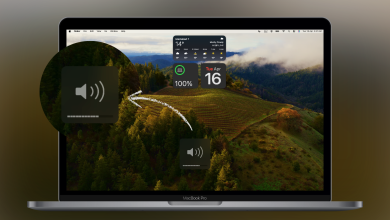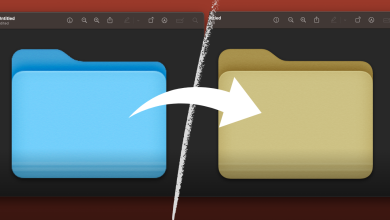How to Resize An Image on Mac in 4 Different Ways
If you have a large image that’s taking up too much space or its dimensions aren’t quite right, you might want to resize it. This could be an image you downloaded from a website that offers free pictures or a high-resolution screenshot you took for your blog.

Resizing an image on a Mac computer is simpler than on an iPhone. This guide will present different scenarios where resizing your images could be beneficial. We’ll walk you through the process of adjusting the size of an image on a Mac using Preview, Pages, Photos, and the Mail app. We’ll also share some free tools you can use for resizing images on a Mac.
There are several reasons why you might need to change the size of your pictures. Here are some of the most common:
- If you’re adding pictures to your website, you may want to avoid using up all the storage space on your server.
- Some websites have specific size requirements for the images you upload.
- When sharing pictures with others, the original, high-quality files might be too large to send easily.
- If you’re printing a picture, you may need it to match specific dimensions or quality requirements.
These examples demonstrate why adjusting the dimensions of your pictures is sometimes necessary, ensuring they meet your needs without sacrificing quality or usability.
We’ve provided several methods to help you manage your image sizes effectively, whether you’re a beginner or more experienced.
1. Resize an Image on a Mac Using Preview
To resize an image on your Mac, you can use Preview, the default app for viewing images. It’s straightforward for basic tasks like resizing your image. Preview supports many standard image formats, including JPEG, JPG, TIFF, PNG, and more.
- Start by opening your image in Preview.

Open the image in Preview - Go to the top menu bar, click on “Tools,” and then choose “Adjust Size.”

Click on Adjust Size - This action opens the “Image Dimensions” menu, offering various settings.

You’ll see Image Dimensions menu - The current size of the image will be displayed (for example, 142.24×106.68 pixels). A drop-down menu labeled “pixels” allows you to change the measurement units to inches, centimeters, points, millimeters, or percentages if you prefer.

You can adjust the size - To adjust the image size, select a different measurement from the drop-down menu on the right, which is set to pixels by default. For instance, choose a size like 1024x1024.

Choose the size from drop down menu - Once you’re happy with the new size, click “OK.” Remember to save your image after resizing.

Click OK when done
If the “Scale proportionally” option is checked, changing one dimension will automatically adjust the other to keep the image’s proportions the same.
↪ Resize multiple images at once using Preview
You don’t have to resize each photo individually on your Mac. Preview allows you to resize multiple images at once. Here’s how:
- In a Finder folder, select all the images you want to resize by clicking on them, then right-click.

Select all the images - Go to the top menu bar, select “File,” and click “Open.” This will open all the images in the Preview app.

Click Open - Once your images open in Preview, you’ll notice one main image and others as small previews on the side. Press “Command + A” to select all the photos.

Select all images by pressing Command + A - Head over to “Tools” in the Preview menu at the top and choose the “Adjust Size” option.

Click on Adjust Size - In the window that appears, set the new size for your images and click “OK.”

Click OK to complete the process
↪ Cropping an image in Preview
Cropping an image in Preview is also straightforward. Here’s how to highlight just the portion of the photo you wish to keep:
- Open your picture in Preview, click anywhere on the image, and drag your mouse to draw a selection around the area you’re interested in. When you release the mouse, a dotted line will indicate the selected part.

Select the area with mouse - Next, go to the “Tools” menu and choose “Crop” to trim away parts outside your selection.

Click on Crop - To save this change, press Cmd+S. If you’d like to save this cropped section as a new file while preserving the original, click “File,” then select “Duplicate.”

Choose Duplicate to save as a copy
2. Resize images on a Mac with Pages
If you’re using the Pages app on your Mac for documents, resizing pictures within your Pages files is easy. Here’s how:
- First, open Pages and click on the picture you want to adjust.

Open the image - Then, look to the right panel and find the “Arrange” section.

Click on Arrange - In the “Size” sub-section, type in new sizes for your picture. To maintain the original proportions (so it doesn’t look distorted), check the “Constrain proportions” box. When you change the width, the height will automatically adjust proportionally.

Adjust the image size
After entering new numbers for width or height, the picture will resize immediately in your document.
3. Resize images on a Mac using the Photos app
The Photos app, which replaced iPhoto in 2015, is frequently used by many. Besides viewing photos, it lets you edit RAW images, apply custom filters, and even create slideshows.
Before editing, you need to add the photo to your Photos library. Pictures from your iPhone, digital camera, or SD card are likely already there. For external images, drag them into the Photos app or choose File > Import.
Here’s how to resize a photo in Photos:
- Open the Photos app and pick the photo(s) you wish to resize.

Select the photo you want to resize - Go to File > Export 1 Photo (or more, depending on your selection).

Click Export - Explore options like Full Size, Large, Medium, Small, and “Custom.” Custom allows you to define your size in pixels.

You can pick the desired size - With Custom, set a maximum Width or Height. Selecting “Dimension” lets you limit both width and height to a specific number.

Customize the size - You can also choose the file type, adjust compression quality, exclude location data, and select a color profile.

Explore more resizing and editing options - Click “Export” and decide where to save the resized photo.

Click Export
4. Resize images on a Mac in the Mail app
If you’re trying to send a large picture through the Mail app on your Mac and it’s too big, you can resize it directly in the Mail app. Large images can be problematic if the recipient’s email server blocks them. Here’s how you can resize an image using the Mail app:
- Start by opening Mail and attaching the images you want to send in an email.

Add the Image as attachment - Look for the “Image Size” option on the right side of the email’s header and click the drop-down menu next to it.

Click on Image Size - You’ll see options for Small, Medium, Large, and Actual size. Choose one, and avoid “Actual size” if you aim to reduce the image size.

You can resize image here - Once you’ve made your choice, go ahead and send your email.

Once done, send your email
 Reviewed by
Reviewed by 




